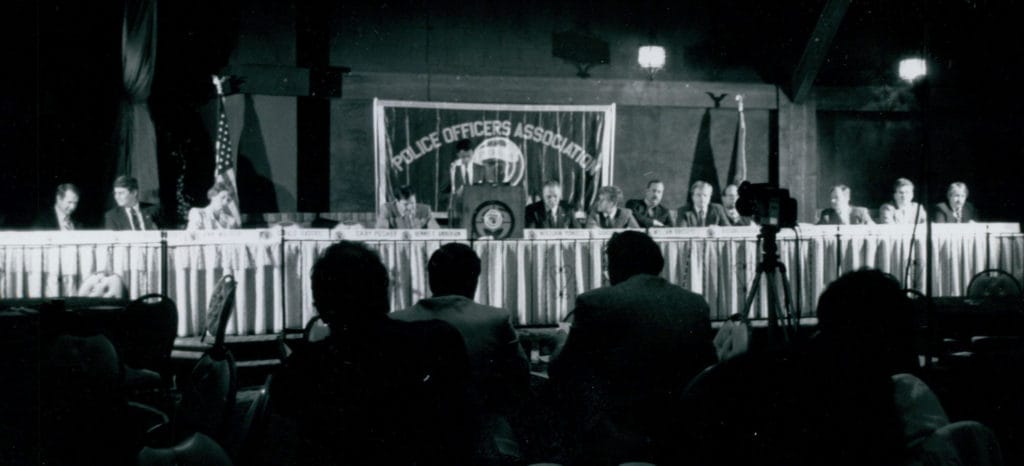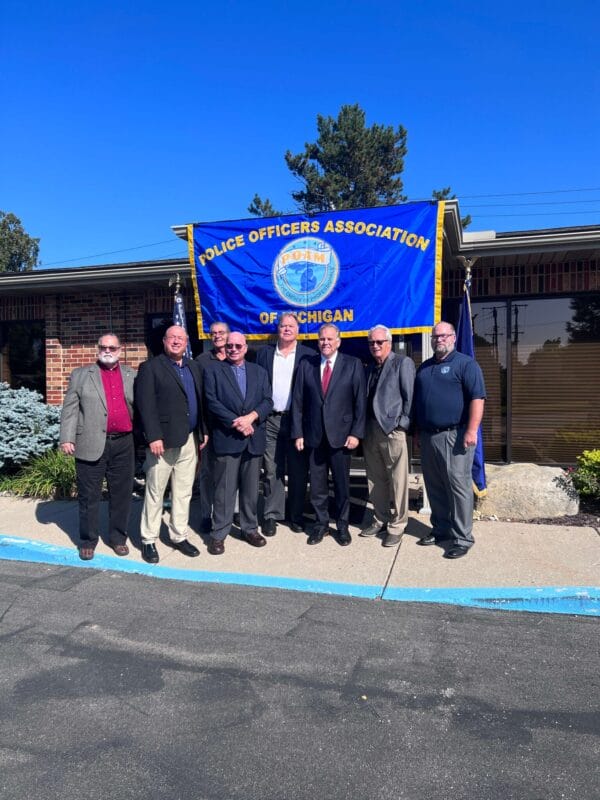The change in perception of unions over the history of the United States has been nothing short of dramatic, as has the growth in the ability of unions to protect their members. Indeed, union membership has come a long way, moving from a perception as a radical interest group to a historical right protected by decades of case law and legislative protection.
Law Enforcement Union Representation
The right to unionize in the United States began in the late 19th century to combat the poor working conditions and pay seen by workers in the United States. A series of significant events for labor in America culminated with increased efforts to gain union representation, culminating with numerous strikes and the formation of the American Federation of Laborers in 1886.

Over time, the rights of unions have expanded, as have the people that these unions have served. Law enforcement unions first came to power in 1919 with the strike of the Boston Police Department. While that event ultimately set back efforts to gain law enforcement union representation, efforts would rebound, particularly during the high-crime eras of the late 1960s. During this time, law enforcement union representation began to gain power, and elected officials codified the rights of public sector unions to negotiate on behalf of their members.
The Power of One Voice Through Collective Bargaining
A union is only as powerful as its members allow it to be. Unions offer strength in numbers. By joining a union, law enforcement officers position themselves to be represented by union officials and empower their elected union leaders to negotiate for them. The collective power for union members thus lies in their amplified voice. Alone, one member likely won’t be able to obtain a pay raise, job protections, or better equipment. Acting together, unions can do just that, as the strength given to unions by their members allows them to obtain real benefits.
Consider recent real-life examples. In Detroit, police were recently given a $10,000 pay raise. In Flint, some police officers earned a pay raise of as much as 50%. Reflecting the real-life power of police unions, Michigan Governor Gretchen Whitmer recently proposed a budget that would increase the number of police officers serving the state. These gains only occurred thanks to the power of police unions and collective bargaining. The Police Officers Association of Michigan helps to fight for these pay raises, ultimately creating an environment that results in better-paid police.
Protecting Officers’ Rights
Police officers face very serious legal and physical challenges in their jobs. Allegations of misconduct, racism, or using more force than necessary can unquestionably end an officer’s career and even put them into significant legal jeopardy.
Union representation means more than better pay: It also means access to resources to help stave off legal attacks. Michigan police officer unions allow officers access to professional and competent representation if there are ever disciplinary issues or concerns. These services and the ability to file grievances against any government violating contracts or creating unsafe working conditions are a cornerstone of union involvement. At the Police Officers Association of Michigan, we offer an extended legal representation plan that provides participating members with all the legal resources they need should criminal charges result from either on-duty or off-duty actions.
Officer Welfare and Support Systems
The job of serving as a police officer is often a traumatic one, with officers engaging in physical and psychological stress that is much more severe than those seen by most members of the population. This reality may help explain why law enforcement officers have higher rates of mental illness and addiction than the rest of the population. To that end, unions offer real support, ensuring access to services and counseling specifically geared toward the issues law enforcement officers face.

We also fight for real retirement benefits for our members, including protecting their pension and ensuring that union members have access to health care for the rest of their lives – long after they hang up their badge. Unions offer various additional services to their members, including access to retirement planning, assistance in coordinating health benefits, and counseling on how to use both in retirement. Thus, the benefits of union membership are not just for active members: They are with members for their entire life.
Serving As A Voice For Pro-Police Policy
Amplifying the perspective of a group in public policy requires a loud voice, and unions amplify officers’ needs at every level of government. At the Police Officers Association of Michigan, we have trained staff that works with elected and appointed officials at all levels of government, ensuring that the perspective of police officers is known everywhere. These efforts translate into meeting with elected officials, proposing legislation, and ensuring that government officials always know how a proposed law or regulation will impact public safety.

We also ensure officers know the changing state of play regarding public safety and evolving laws. The role of a union is to ensure that officers have access to training, helping them keep updated with changing laws and their rights as police officers. Finally, unions fight to ensure officers can access equipment to protect themselves and their communities.
Enhancing Community Trust
The role of a union isn’t just to protect officers by fighting for their rights. At their core, police unions are fighting for better and safer communities. That means creating an atmosphere of trust and accountability. Unions fight for the rights of their members, but they also work to ensure that members are held accountable for their actions. By raising the standards required for police officers, creating public forums, and ensuring a culture of responsibility, police unions can create better police officers and safer communities.
As community members themselves, police officers are partners in creating safer neighborhoods. As any police officer knows, this means building trust within a community. Police unions will regularly hold events that build this trust, including block parties, toy giveaways, volunteer activities, and more. These events foster positive community engagement and ensure that officers have a chance to get to know their communities in a friendly and non-confrontational way.
Representation for Michigan Law Enforcement Matters
Union benefits for officers are clear. Individuals can protect their rights and responsibilities by joining a law enforcement union and obtaining law enforcement union representation. Police officers can join an organization with decades of experience protecting law enforcement. In doing so, officers can positively impact law enforcement policy in Michigan.
By joining a police union, officers can take full advantage of the major benefits a law enforcement union offers. Join the Police Officers Association of Michigan and champion our rights, welfare, and community together!


One response to “Why Every Law Enforcement Officer in Michigan Needs Union Representation”
Posted by Brandon Christoph Green
I am still waiting for paperwork and payment from local law enforcement and everyone else in the world of everything. The new thing is that all said officers who were informed before just freaking tried to murder my ass after carrier life of occupancy was verified by the Smithsonian museum genuine and authentic.
There is many murders going on to cover up the truth about all the illegal human experimentation victims being children and around Houston nasa. Homeland security is still fucked with evidence of almost a trillion dollars so far that way is lower than the accrued adget of welth acuring immanate welth and equity equivalent growth domain backed cent to cent should have taken, but oops my bad.
Anyway I was thinking about kicking the shit out of nasa and whatever is left of the FBI????
Hahaha, just kidding.
Seriously you planning on helping with license containment all the way around USA?
Biden didn’t like the impeachment of his self by myself for illegal technology knowing but denial due to brother involved…
Oh I might have allegedly told the white house staff and prez that I am justified to take the life of pretty many all concerned parties so?
My resources I could have this shit done quickly nasa and homeland security seized my combating combustible variables to be terrist themselves.
Posted on November 2, 2024 at 9:48 PM